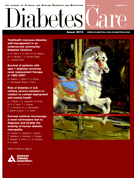Celiac disease is known to be triggered, at least in part, by environmental factors. These factors can even affect one identical twin and not the other and seem to have their greatest impact during infancy when gluten is first introduced to the diet. Gut flora makeup and vitamin D levels are 2 factors which differ in infants and could affect the development of the immune system in ways leading to celiac disease. Recent research has shown that gut Bifidobacterium levels are lower in both treated and untreated celiac disease patients. Bifidobacterium species have properties which are beneficial to the immune system such as increasing IL-10 secretion and decreasing intestinal permeability. But other microbiota species may also have important effects and benefits to the developing immune system. Scientists are only beginning to scratch the surface both in cataloging the microbiota species found in the gut and understanding how environmental factors, such as antibiotics, affect their makeup and, in turn, how the makeup of gut microbiota affects human health. A new article on Medscape.com discusses the current state of this research and is excellent reading:
Gut Reaction: Environmental Effects on the Human Microbiota
Melissa Lee Phillips
Published on Medscape.com: 07/15/2009
Open Original Shared Link
Celiac.com Sponsor (A12):
It may be years before research fully understands how gut microbiota and vitamin D deficiency may be involved in triggering celiac disease. Both vitamin D and probiotic supplements (such as Bifidobacterium infantis) are cheap, readily available, and generally safe. There is much current research showing how important vitamin D is for overall health. Your infant's health is a matter of immediate concern and cannot wait 5 or 10 years for research to confirm whether such supplements can help prevent celiac disease. It would seem prudent to make use of these supplements now in both mother and infant during pregnancy, while breast-feeding, and prior to introducing gluten to your baby. Consult with your physician about how much is the right dose.






Recommended Comments